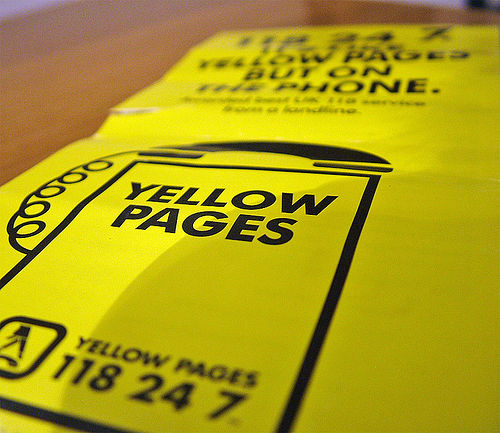I honestly don’t know why I subject myself to Mashable‘s content in a set of regular RSS subscriptions; I may have to unsubscribe from it just to prevent a blown vessel. I’ve briefly mentioned the site before in a similar vein, but today’s insipid read was a simply delightful piece about how brands belong on Twitter.
Let’s put this in perspective here, so everyone’s on the same page about the importance of these things. Twitter is a short messaging service that allows people to relay their LiveJournal status/presence messages to any number of friends (a typical day might go: “eating a Filet-O-Fish”, “regretting eating that Filet-O-Fish”, “feeling slightly better after expelling gas caused by that Filet-O-Fish”, “buying a new keyboard after I projectile vomited that Filet-O-Fish”.) Twitter used to send SMS to your cell phone for quick responses – like when Major Nelson hands out free Xbox Live Marketplace codes – but no longer does that because they can’t keep pissing money away to the carriers.
Used under Creative Commons license from Adam Kuban
In short, it’s a service giving you easy access to people’s most inane parts of their lives. A service that exists only to provide status updates, which is a service that companies like Facebook consider one small feature of their site. It’s also a service patronized by zealots who think that a graphic indicating downtime is worthy of its own entry in a dictionary.
Which is why the heading “Twitter is the New Phone Company” made me nearly blind with rage.
Listen, Twitter is a small Web 2.0 service that was rumored to host their entire backend with three MySQL boxes, and their front end with everybody’s favourite language, Ruby on Rails. They’ve figured out a way of relating “@token” to another token somewhere in a table, and even then only if it’s the first thing parsed in the message. Even going as far as to call Twitter a “social utility” is exceedingly generous. You’re nowhere near a phone company unless you’re providing the infrastructure. Remember how I can’t get SMS on my cell any more (or for that matter, instant messages)? Twitter is most accurately a slave to the phone companies.
Let’s cherry-pick some quotes from the article:
I believe it was Chris Brogan who recently Tweeted that he follows so many people because he thinks of Twitter as the new phone company.
I’m finding that a hard statement to reconcile. The phone company doesn’t care how many friends you have, who you listen to and what you say over the service. That’s for the Secret Service to decide. If anything, the phone company would prefer that you contribute to their bottom line by paying bills on time (Twitter’s free); making numerous long distance calls (Twitter’s free) and buying up all their extended services (Twitter’s FREE.) There’s no “freemium” model that most starry-eyed entepreneurs have staked hundreds of thousands of venture capital on. You can’t just compare a Web service to a physical utility without giving an example.
It is certainly a useful utility that might even grow up to be even too useful and powerful to ever be meaningfully monetized.
The entire point of the article is that brands can make money off this service. Constant positive communication helps build lifelong customers. It transforms your product or service from a “want” into a “need”. Why would it be so impossible to monetize the backbone that powers this communication? Here’s a business idea: feature prominent companies using the service for a monthly fee. Or perhaps a paid index of companies offering particular services and people authorized to speak on their behalf. It’s something that works pretty well in the telephone world.
Used under Creative Commons license from metrostation
I understand that it’s popular to side with the hippies in this matter – people who believe Web services are powered by fairy dust and pleasant dreams. We’ll start seeing more of these services going under as these unrealistic expectations grind to a halt. MySpace’s existence proves that it’s possible to gain media coverage and rake in the coin based on people being emo in a public forum. They, however, have actual financial backing and deals with content providers. Twitter has no such thing.
Not that it can’t happen but Twitter has become such an extremely dynamic form of communication that it may transcend that simplistic, “where is your business model” mentality.
Just because the question of business model is simplistic doesn’t mean it’s not apt. There’s a clear business model for a phone company – sell value-added services to chumps (long distance, three-way calling, voicemail) and provide a connection for a monthly fee. Twitter’s seems to be “hope to get bought out, and sell advertising in Japan.”
Protip, Mashable: if I hear the word “tweeple” ever again, I will take some piano wire and garotte the next iPhone-tapping social media whore I see. And it will be justly deserved.


Comments are closed.